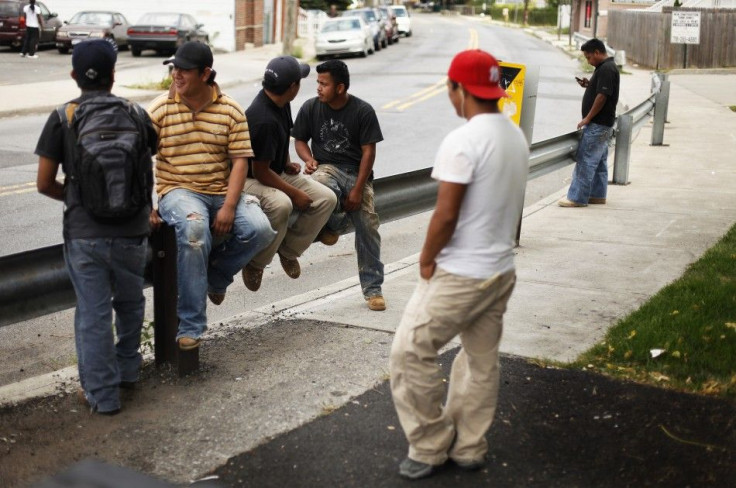Republican Immigration Rift Exposed by Background-Checking E-Verify Bill

Conservatives and Tea Party groups have found themselves in the unlikely position of agreeing with liberals on immigration as they rally against a bill that would impose mandatory background checks to ensure new hires are eligible to work in the United States.
The legislation, known as E-Verify, is sponsored by House Judiciary Chairman Lamar Smith, R-Texas, and seemed poised to sail through the Republican controlled house. But the bill has set up a clash between two Republican doctrines: cracking down on illegal immigration versus opposing regulations that could dampen hiring and constrain small business owners.
A letter to Congressional Republicans that was signed by a coalition of 27 groups championing limited government, including some Tea Party organizations, underscored the latter concern. The letter denounced the bill as a job killer, and signatory Judson Phillips of Tea Party Nation told The Wall Street Journal that it's not private enterprise's job to enforce immigration.
A few have claimed that a federal E-Verify requirement will cause jobs losses, Smith said in a written response to questions about opposition to the bill. Yes, E-Verify is a jobs killer, but only for illegal workers.
The fissure parallels efforts by some Republican lawmakers to make it easier for immigrant farm laborers to work legally. Pressured by farmers who rely on undocumented immigrants willing to undertake physically arduous, migratory field work, Rep. Dan Lungren, R-Calif. and Rep. Doc Hastings, R-Wash., have been pushing for a new visa category that would grant seasonal work permits to itinerant immigrant workers. In an interview, Lundgren linked his support for E-Verify to the establishment of those new visas.
If we don't have a fix to this proven labor problem in agriculture, I don't think you can get an E-Verify program passed, Mr. Lungren told The Wall Street Journal, adding that he was dealing in reality.
Such candor about how many U.S. businesses rely on undocumented labor, particularly in the agricultural industry, undercuts the justifications Republican governors have offered for tough new immigration laws in states like Georgia. A new immigration law in Georgia cracks down on immigrant workers, and governor Nathan Deal has made the controversial proposal of replacing immigrant workers with former convicts. But farmers in Georgia have complained about a labor shortage as the new law deterred workers who could usually be counted on to seek seasonal work.
We keep hearing we should be hiring the unemployed or prisoners, but such employees never materialize, or apply for work only to quit abruptly, Julia Rothwell, past chair of the U.S. Apple Association, told The Wall Street Journal.
© Copyright IBTimes 2025. All rights reserved.




















